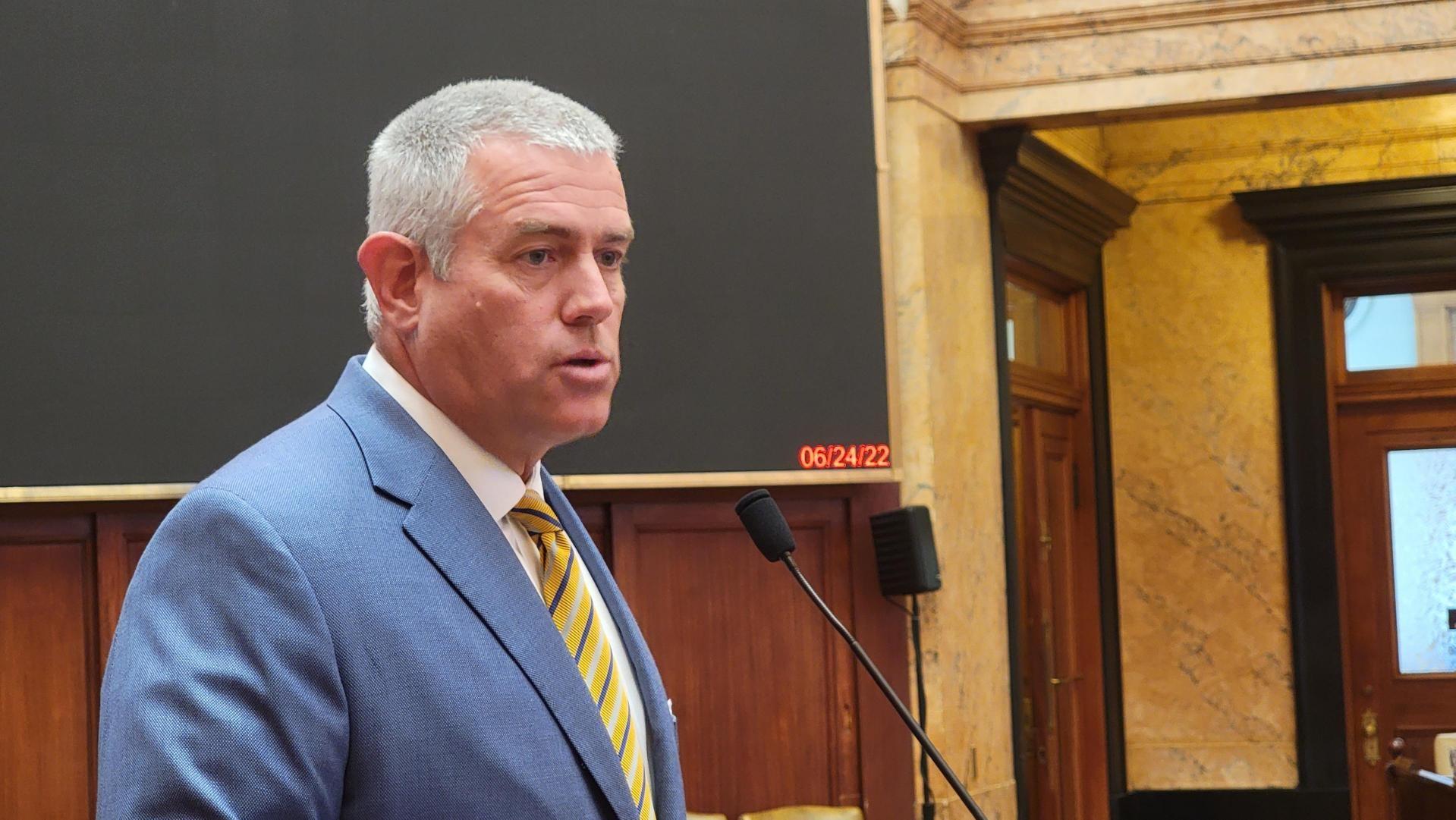He spoke about his intentions for the upcoming legislative session as a guest on the Nov. 3 episode of the Gallo Radio Show, Paul Gallo’s morning news broadcast of SuperTalk Mississippi.
The Pregnancy Resource Act is a dollar-for-dollar match for businesses that seek to ease their tax burden. Since the bill went into effect on July 1, Gunn said nearly $800,000 in credits have been claimed. The current budget is capped at $3.5 million, but Gunn says he will push to raise that figure to $10 million.
“I have asked all the crisis pregnancy centers to tell me what their annual operating budget is, and it totals $10 million,” Gunn said. “If we can give a tax credit for $10 million, we will theoretically have opened the door for businesses to step up and completely provide the total operating budget (for) the 37 crisis pregnancy centers around the state.”
Gunn sees it as a way for the state to encourage businesses to invest in an anti-abortion maternal healthcare system, but others have pointed out that pregnancy resource centers can’t provide for all of a mother’s needs. There has also been some debate on what qualifies as a pregnancy resource center and which are able to receive donations.
In the past, there have been bipartisan efforts to expand Medicaid coverage for mothers to cover up to 12 months postpartum, but Gunn blocked them. He said he doesn’t think it’s a solution for the small percentage of mothers who may potentially be covered.
But Dr. Anita Henderson, president of the American Academy of Pedatrics’ Mississippi chapter, says research into the cost efficiency shows that expanding postpartum Medicaid coverage would cost millions less than expanding tax credits.
“In past years when we've estimated how much postpartum care would cost the state of Mississippi, it's been estimated at about $7 million per year,” Henderson said. “So we have the opportunity in Mississippi to pay for postpartum care more cheaply than increasing tax credits to crisis pregnancy centers to $10 million.”
Henderson has been practicing in Hattiesburg, Mississippi for more than two decades. While crisis pregnancy centers do have a role in the maternal care system, they do not provide healthcare, she said.
“Pregnancy centers are able to provide diapers, some food, clothing — all important aspects of taking care of babies. However, they do not provide health care. They are not able to care for moms, postpartum or prenatal,” she said.
Expanding Medicaid coverage could mean more physician visits, wellness care and mental health screenings for mothers in the period after birth. Henderson said having longer periods of coverage could improve outcomes for mothers with ongoing health issues, especially in a state with some of the highest rates of maternal and infant mortality.
“I think if you ask mothers what they would prefer after delivering a baby, health care would certainly be a priority for them,” she said. “Crisis pregnancy centers certainly have a role in our state, but health care and health care access, health care availability would certainly be a priority.”
This story was produced by the Gulf States Newsroom, a collaboration among Mississippi Public Broadcasting, WBHM in Alabama and WWNO and WRKF in Louisiana and NPR. Support for reproductive health coverage comes from the Commonwealth Fund.




